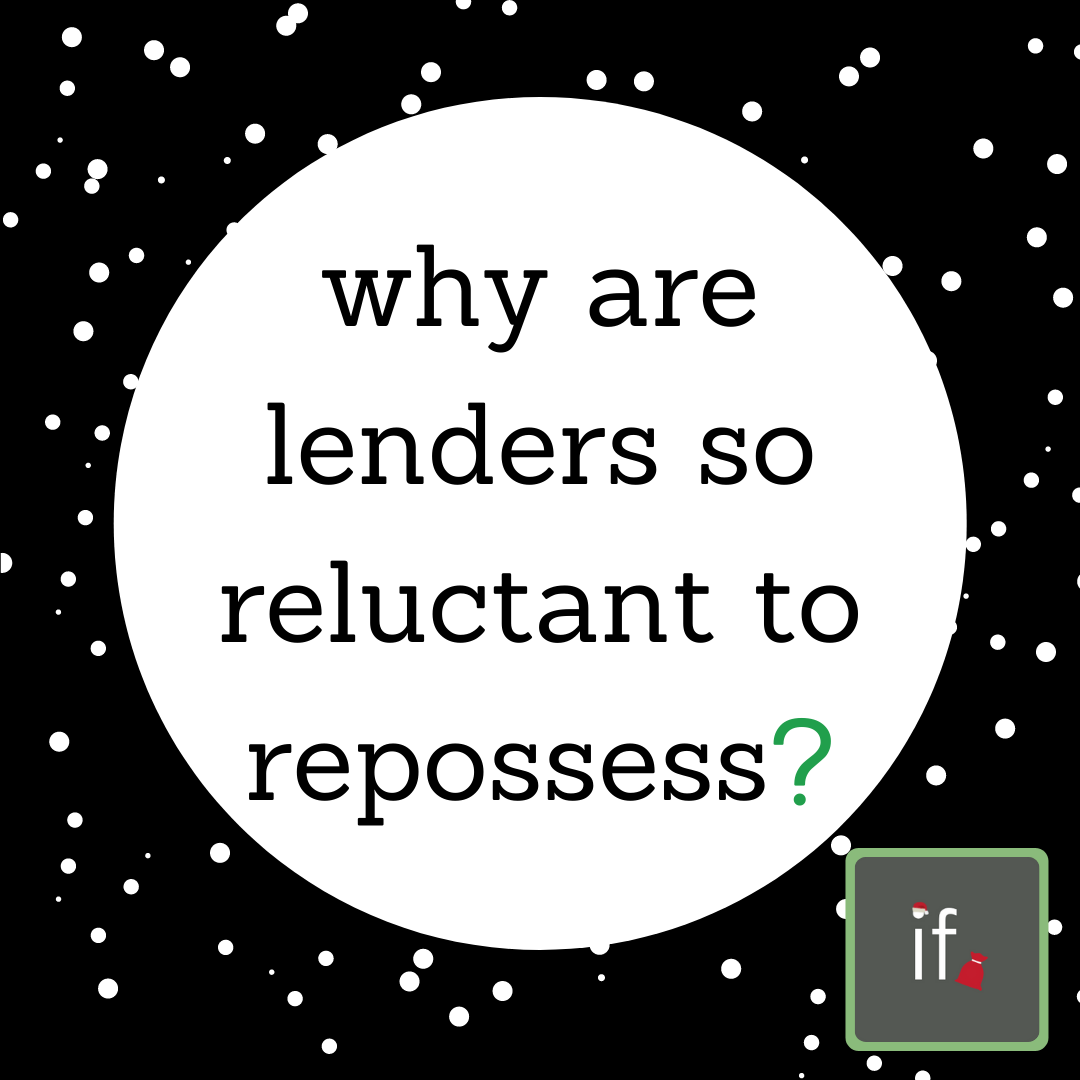


Integra News Why are lenders so reluctant to repossess?

Clients often ask us: “Why won’t lenders let me borrow money when they could just repossess my property if I don’t make payments?”
The truth is that repossession is a last resort for lenders. Lenders use mixed resources to raise funds for mortgages. Some are classed as ‘balance sheet’ lenders whereby they use their own internal funds from investments to raise capital for mortgage lending, others use interbank lending (LIBOR) and therefore borrow money from other banks, etc. Because of this style of lending, banks and building societies borrow at a cost and therefore have a responsibility to repay that debt.
Similarly to us as individuals, lenders have credit ratings. So, if we look at lenders who operate on the interbank lending platform to raise capital for a mortgage lender, if that lender defaults on their repayments to another lender, this puts a dent in their credit rating, and this will make them less attractive for other financial institutions to do business with.
Let’s make an example. I borrow money from Peter and lend it to Paul. Paul assures me that he can pay the debt back, and as the person in the middle, I give Peter all the assurances that the debt will be paid back. Peter provides me with the relevant warnings and risk disclaimers to inform me of what will happen if the debt doesn’t get repaid. Paul doesn’t maintain his debt, which means I now need to maintain the debt whilst also managing Paul’s expectations and responsibilities, thus costing me time and money. Paul eventually defaults, and we must repossess.
Months later, I ask Peter if I can borrow some more money to lend to another client and give him all the assurances that the debt will be repaid, but this time, he tells me to jog on! It’s too risky based on his last experience with lending me money, and so my ability to borrow money and help other clients has now been negatively impacted.
This is what will happen if you default on your repayment to a lender. If you fail to make payments, this negatively impacts the lender’s reputation and credit rating. This is because although they have eventually made the money back through repossession, they didn’t make payments back within the timeframe they were given by their lender and mistrusted you, the client.
“Aren’t lenders covered by the interest rate?”
This is a common misconception. Banks/building societies not only have to repay any borrowed funds, but they also need to pay staff wages, insurances, and other overheads. These costs are in the millions, and this is what interest accounts for.
Now you have an idea of where the money goes. Sure, lenders will make a profit from it, they are businesses after all. But lenders rely on business in mass volumes and their consumers keeping up their end up the bargain to stay afloat.
One more thing before you go, let’s talk about capital adequacy.
Capital adequacy is the set value of liquid cash available in the business to cover defaulted credit (otherwise known as bad business) or unforeseen economic downturns.
If a lender dips into their capital adequacy to cover repayments, this takes away from their security, again making them less attractive to other financial institutions. The regulator would not be too happy if the bank/building societies don’t meet the capital adequacy demands they have set out. Other lenders will be thinking to themselves, “if the economy crashes, so will this business. Why would I want to lend to a business that may not survive in the event of an economic downturn, and so risk losing all that money?”.
In summary, lenders risk their credit rating, reputation, and possibly even their security if they lend to someone who may default and need to be repossessed.
We hope that this clears up why lenders are always reluctant to lend if they are uncertain that the borrower will be able to make repayments, even though repossession is an option.
Thank you for reading this blog, and we hope you have a great day. If you’d like to keep updated on when we post blogs out, any social events we go on, or any achievements we make as a business, feel free to follow our social medias:
https://www.instagram.com/integrafltd/
https://www.linkedin.com/company/integra-financial-ltd/
https://www.facebook.com/integrafltd
We hope to see you soon!
PLEASE NOTE: A mortgage is a loan secured against your home or property. Your home or property may be repossessed if you do not keep up repayments on your mortgage or any other debt secured on it. We offer a comprehensive range of mortgage products from across the market. We offer both first and second charge mortgages, but not deals that you can only obtain by going direct to a lender. For those seeking to increase their existing borrowing, alternative finance options may be available and more appropriate for your needs. For example, a further advance from your existing lender or an unsecured loan (e.g., a personal loan).